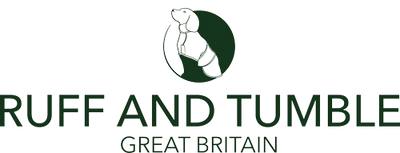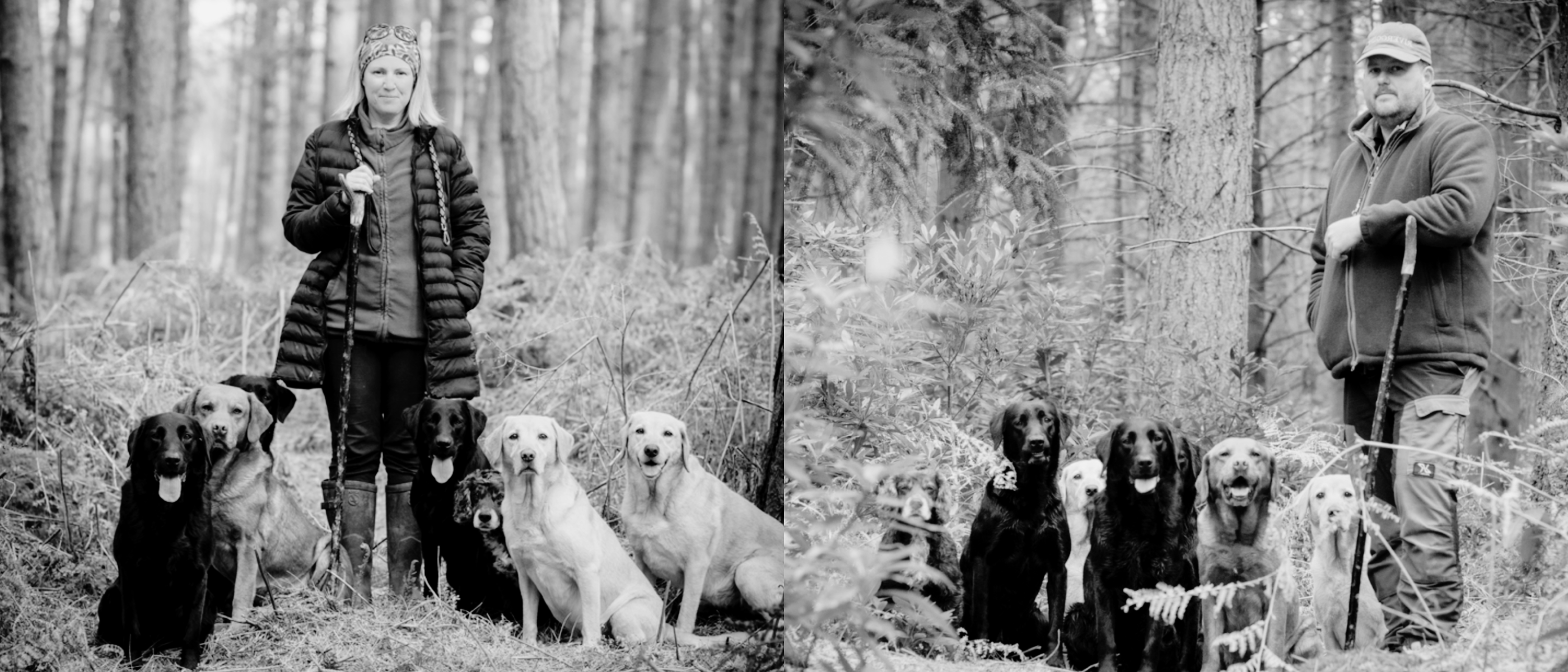
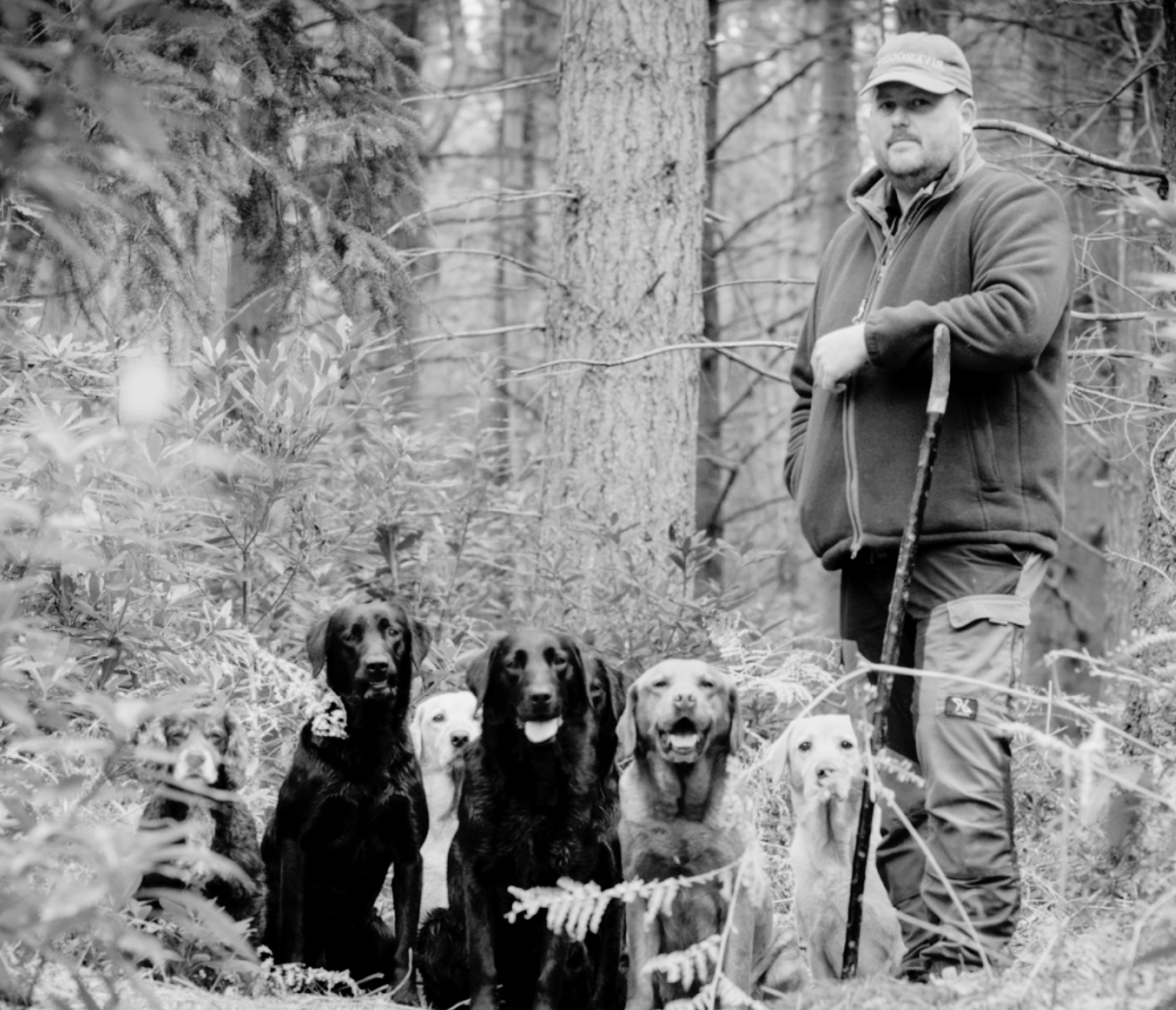
The Professionals - Part 2
James & Katie Harding from Riverggins Gundogs
The Professionals - Part 2
James & Katie Harding from Riverggins Gundogs
Ruff and Tumble products are trusted by professionals worldwide. In the coming months, we'll be featuring interviews with various experts in their fields. Our next guests are James & Katie Harding from Riverggins Gundogs who specialise in working, training and breeding gundogs. Watch the full interview on our YouTube here.
What does Riverggins Gundogs do?
Kate and I run Riverggins Gundogs in Norfolk and we've been here for four years. We breed and train gundogs, mostly Labradors and Spaniels. We offer things like residential trainings where the dogs come and stay with us for a few months. We do the odd lesson and then we predominately breed Labradors.
What dogs do you have?
We've got 19 at the moment. They are all working dogs and they all have a job here. We've got some youngsters who are about to be working, and then we've also got some retired dogs. The only dog that's not a working dog is Katie's Coonhound, who's a lady of leisure mostly hiding under duvets and blankets.
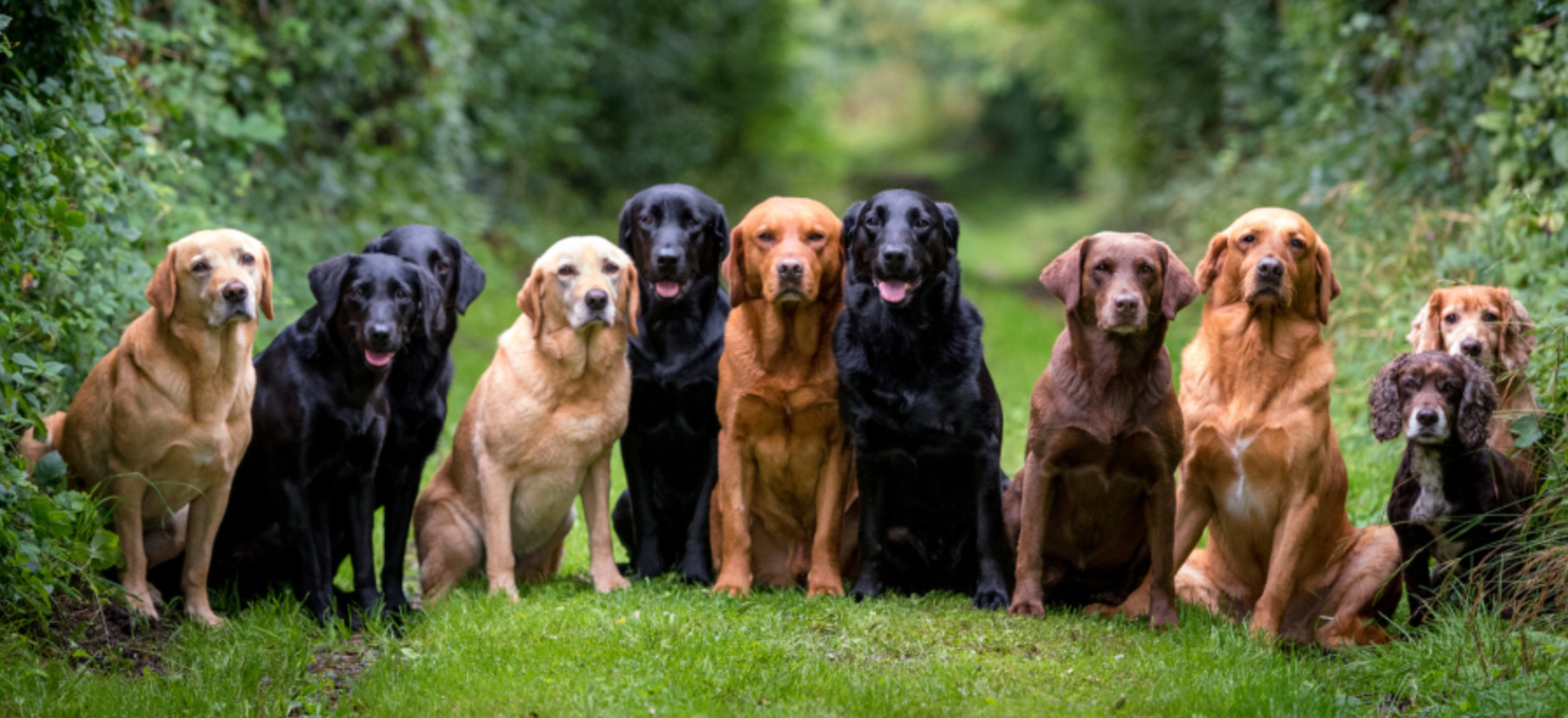

What is the most important thing to teach a puppy?
I think the most important things are getting them to follow you. We do a lot of training with food to start with. So with mealtimes, rather than make their food and put it down, we'll take the puppies for a little wander, get them following us. We start introducing a whistle at a very early age, even though they have no idea what it is.
Within a very short space of time, they're hearing this little whistle and know that means food. If the bums go on the floor, suddenly the food is presented to them. I think by the time puppies go at nine weeks old, they're almost walking to heel. They're understanding a sit whistle so a little pip means sit, something might happen and they're really good at just following us around. Puppies naturally want to follow you around anyway, but with that incentive of having food in your hands and adding other dogs, it's a great start.
How do you look after a working dog?
Certainly dietary wise to help the joints, things like tuna and black pepper. We give linseed oil, which is in their food at the beginning of the day.
After a really hard shoot day, it's wet, cold and we've got a half an hour journey back from the shoots. We put their drying coats on, wrap them up in their Ruff and Tumble coats. Every dog's got their own coat with a name on it. What that does like an athlete who's just run a marathon, it's keeping the joints warm. Making sure that when they get back that they're nice and warm and they're ready to go into a nice warm bed.
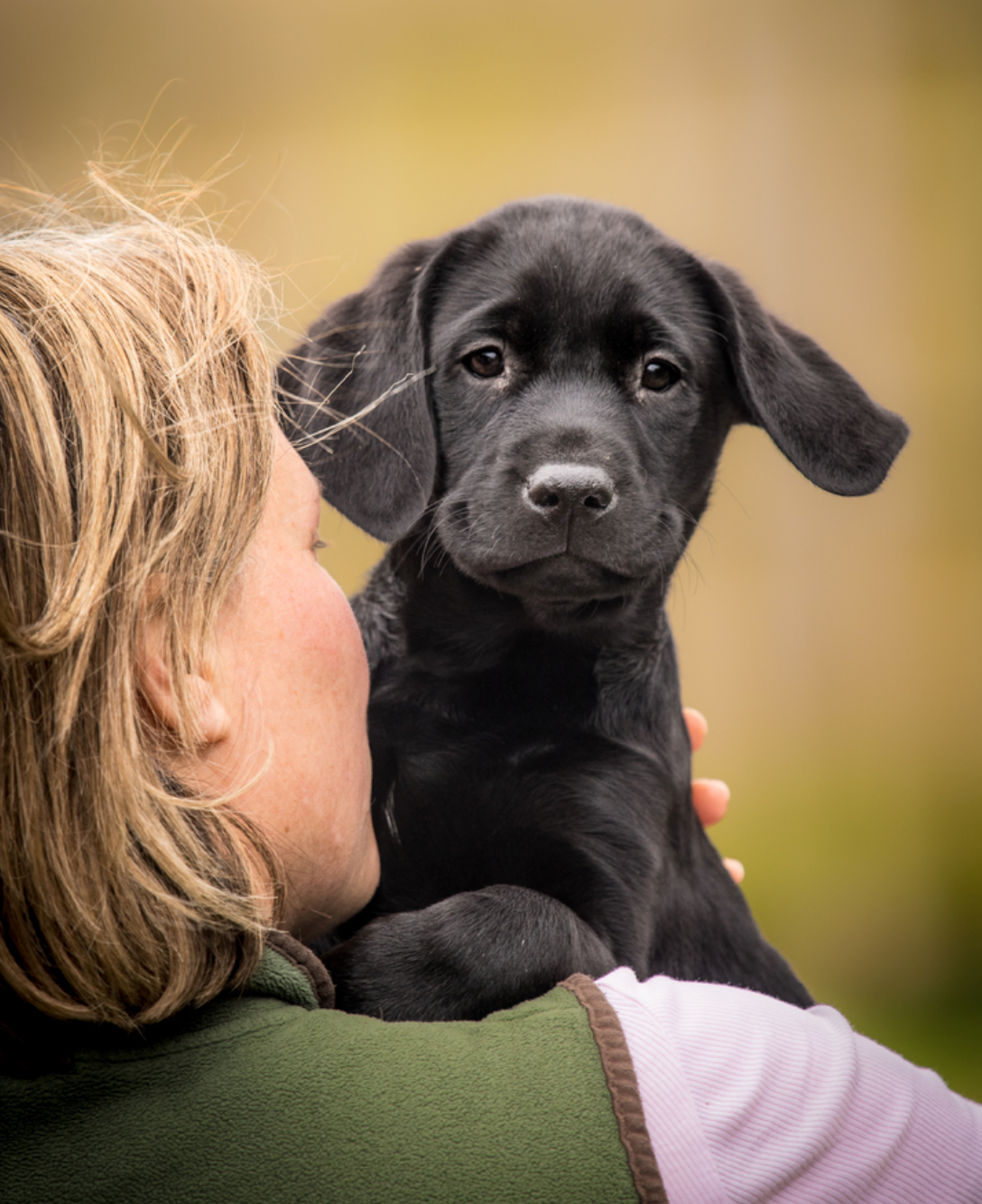
Tell us about your litters.
And we have three litters this year, the big litters. We had three little litters the year before. Mother Nature's completely in charge. Next year, we plan to have three or four letters. And with our team at the moment on our premises, that's probably the most we would have.
How do you choose homes for your puppies?
We're really, really fussy who our puppies go to, that allows me to sleep at night when I'm handing a puppy over. We have quite a process, really. We send them an application form when they first make an inquiry and invite the person to come and meet us here and to meet our breeding pairs. It's so important when you're buying a puppy to meet the parents and see other family members because you're going to have that dog for 14, 15 years of your life and that dogs very much going to be like the mum or dad or a combination of both.
How do you choose a puppy?
People come to choose a puppy when they're about five or six weeks old with us because we think the characters and their personalities are coming through at that later age. If your breeder is asking you to choose at three or four weeks old, it's really hard to see characteristics when they're little. When you come to pick a puppy, you're seeing just a snapshot of the day, the puppy could have just eaten and then is fast asleep. Definitely ask the breeder for their opinion if you're looking for certain characteristics or a puppy with a certain temperament. The breeder will have a clearer idea.
Does Riverggins do anything different?
I guess where we differ slightly is our puppies go at nine weeks old. The reason for that is in that last week between eight and nine weeks old, puppies have only really just got the capacity, the physical capacity, to hold their bladder overnight. With that extra week with us we crate train them in their familiar whelping room, it allows that puppy to then go to their new home already clean and dry overnight, which is less stressful for the puppy and less stressful for the new owners.
To learn more about Riverggins Gundogs and their services visit www.rivergginsgundogs.co.uk
